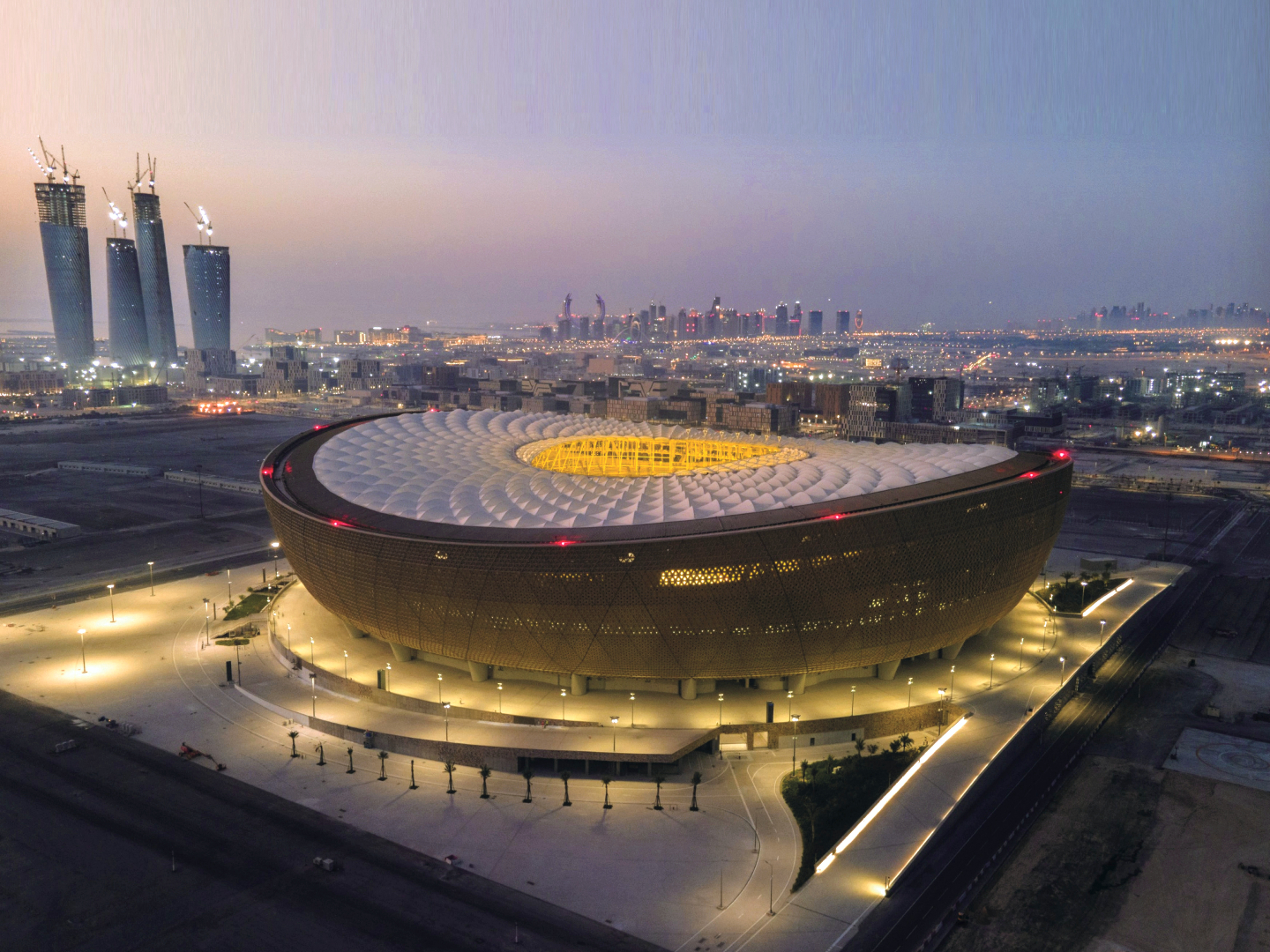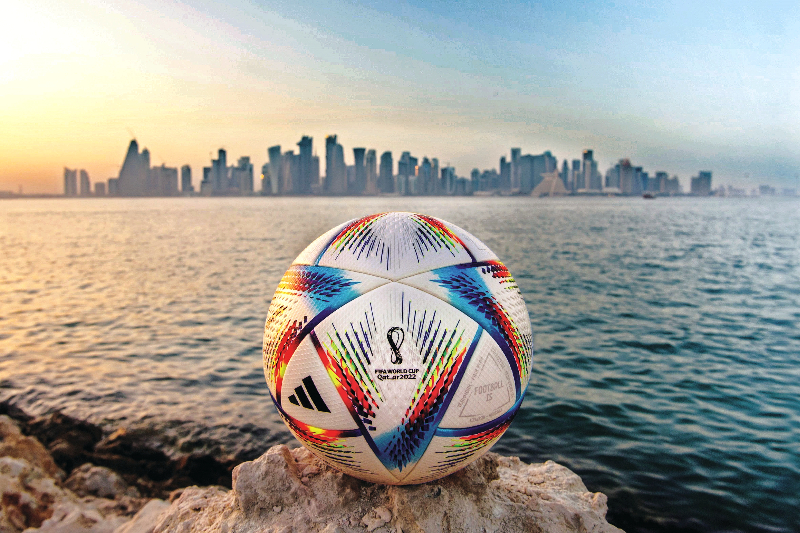
The Lusail Iconic Stadium, located about 23km north of Doha
“Please, let us focus on the football,” pleaded Fifa president Gianni Infantino. “Wish we could” was the response of much of the game as the oxymoron of a Qatar World Cup was finally foisted upon it.
Fifa’s arrogance is breathtaking when it is the one that committed what former president Sepp Blatter now calls “a mistake” — but did nothing to correct it in 12 years. That said, football’s ability to deliver from the tightest of corners should not be underestimated.
Suddenly, what seemed like a sick joke in 2010 is all too real now. And the game is not laughing. Players are nowhere near ready; how can they be when they have to cram in three games a week for their clubs to make room for Fifa’s folly?
Portugal and Manchester United star Bruno Fernandes summed it up when asked about the World Cup the moment the season stopped. “We’re not happy at all,” he said. “A World Cup is more than football; it’s a party for fans, players, something that’s a joy to watch, and should be done in a better way.”
Despite the doubts and fatigue, the tournament could still be a cracker. It looks wide open, there are new faces and familiar ones seeking a fond farewell. There are refugees with unique storylines and there could even be a storybook climax. Nothing personal, Lionel, but we sort of hope not.
the_lusail_iconic_stadium_located_about_23km_north_of_doha.jpg
The case for Argentina is building. Lionel Messi, 35, is not quite back to his otherworldly best but the prospect of him lifting the trophy on his fifth attempt is not beyond the realms.
In the eyes of many, Qatar has already “won” this World Cup with its sports-washing, but surely the football gods would draw the line at a Hollywood ending? But it is the kind of thing football does.
Perhaps it is time for a reminder of how we got here. It was 2010 when Fifa voted for the 2022 World Cup host nation. A 22-strong committee “decided” by 14 votes to eight that Qatar, with one stadium, scant football history and a tiny population, had more going for it than the US, Australia, Japan and South Korea.
The game was aghast, and subsequent investigations led to life bans for several members with dubious reputations. But Qatar vehemently denied all allegations of bribery and the tournament stayed. Fifa did not have the appetite for a legal battle, it is thought, as it might have thrown up even more dirt.
This World Cup could have been the wonderful distraction that a troubled world needs, like it usually is when played in a proper football nation where millions mingle at one of mankind’s great festivals. Instead, only a fraction of the usual numbers will want to go and they will be allowed only a fraction of the usual fun.
In Europe, there is anger at losing a sizeable chunk of the domestic season and it is hard to argue that football’s greatest showpiece is being played in the wrong place at the wrong time.
392913969.jpg

But here in Malaysia, the kick-off times (6pm and 9pm for group games) are more friendly than usual. And besides saying goodbye to Messi and Cristiano Ronaldo, we can enjoy a first look at the eager breakout stars of the coming generation.
The build-up has been dominated by casualties, and players’ union Fifpro has warned that the shrinking of preparation and recovery times (one week instead of the normal four before and after the tournament) could cause many more. Clubs hardly dare think how distorted the rest of their seasons might be.
Low-level hostilities have already broken out. Fifa is banning even token shirt protests while Qatar has hired PR companies to paint Western critics as whingers and racist. They have even paid some English and Welsh fans to visit — and carry pro-Qatari banners.
Every fan has his price but the vast majority simply cannot afford Qatar’s. A pint of beer — the lubricant of football discourse in much of the world — is a migrant worker’s daily wage while a night’s accommodation is the cost of a flight home.
As a host, Qatar ticks every box for unsuitability except for its Star Wars-y stadiums. However, all were built by migrant workers who live in dire conditions. According to a 2021 report by The Guardian, 6,500 have died since the project began. Again, Qatar refutes this.
Besides the human cost, there is the actual price: US$200 billion (RM918 billion) for 29 days of football! The 2018 tournament cost US$11 billion. And in a month’s time, most of the structures will be white elephants.
But the pièce de résistance was the weather: furnace-like summer temperatures that can melt goalposts and caused Fifa to switch to the cooler climes of November and December. Oh, hang on a minute? Did they not spot that in the bidding process?
They did not and the players have to make the best of it. The hope is that when the whistle sounds, they will still be able to serve up a football feast worthy of the name without forgetting what got them there.
For the full story, pick up a copy of The Edge Malaysia (Nov 21, 2022) at your nearest newsstand.


